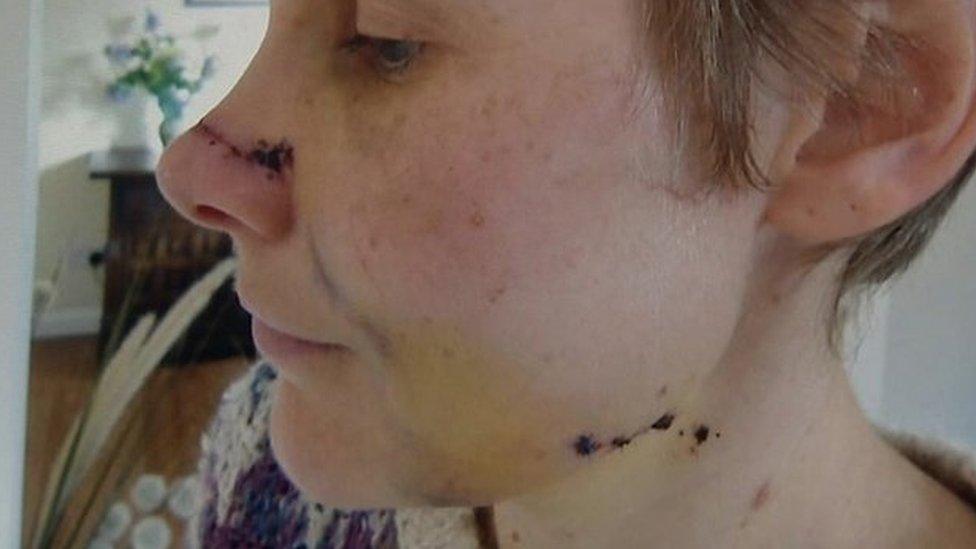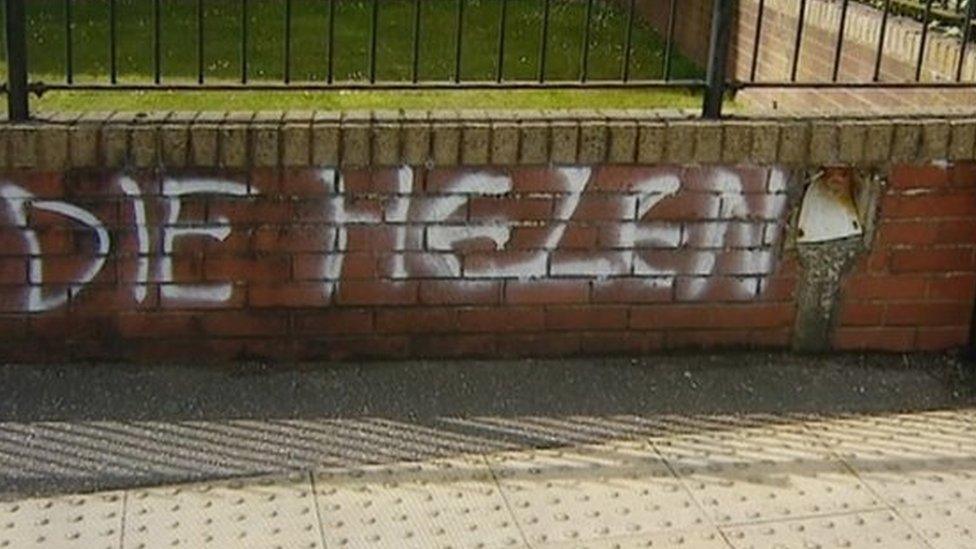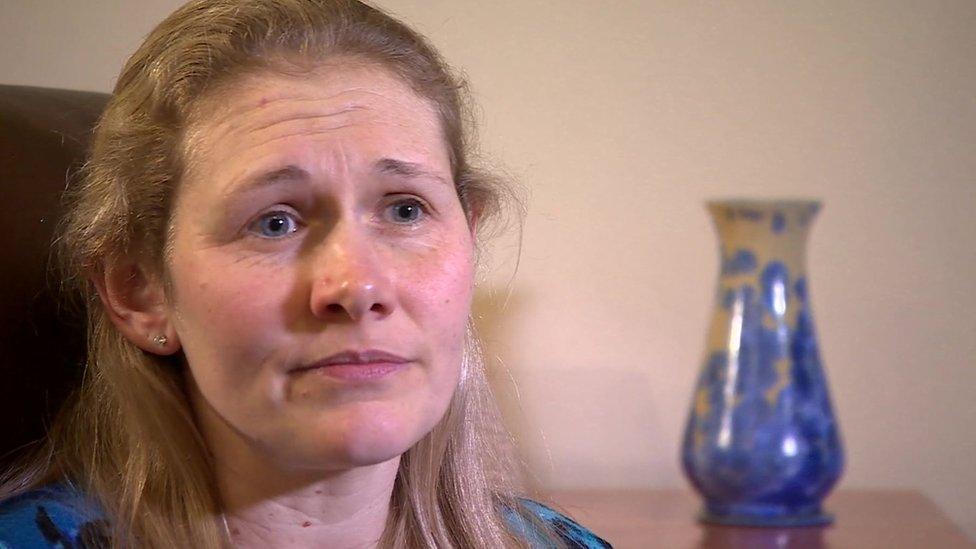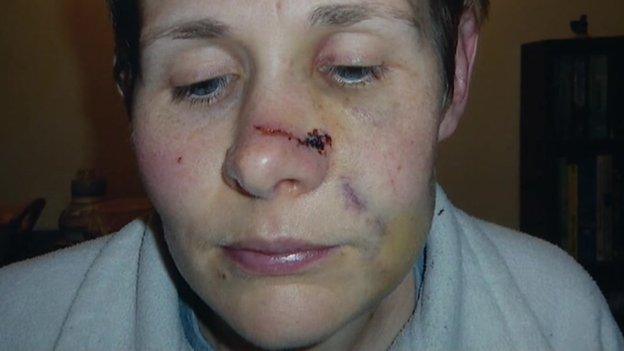Stalking victim: I was living in hell
- Published

Helen Pearson was stabbed in the neck with a pair of scissors by her stalker in 2013
Stalking victim Helen Pearson hopes the introduction of new stalking protection orders by the government in England and Wales will help "shorten the suffering" of others like her.
It started with slashed bicycle tyres.
Then the text messages, phone calls and threatening letters began. A dead cat left on the doorstep.
"It just slowly kind of escalated," says Helen Pearson, from Devon.
"You are constantly the whole time living on a knife edge.
"Every time you had a letter, it would get sent off for fingerprints. They'd find no fingerprints, so it would be logged and it would just carry on and on and on."
After enduring 125 incidents over a period of five years, including graffiti that was daubed around the streets where she lived, Helen's ordeal escalated to an attack.
Her stalker hid in a park near her street and stabbed her from behind in the neck and her ribs with a pair of scissors. A passerby helped her escape.

Graffiti was daubed around the streets where she lived and Ms Pearson received threatening letters
The man responsible was convicted of attempted murder and was jailed for life in 2014.
"I feel like with mine we didn't need 125 crimes before an attack for the face to be shown of the stalker," says Helen.
"Then everything's being done about it, everything's taken very seriously and I feel like that shouldn't have happened, it shouldn't have been like that."
The IPCC are still investigating Devon and Cornwall Police about the way Helen's case was handled.
'Hell and back'
Helen's case is one that the government hopes may have been helped by new stalking protection orders, which police say will help them intervene earlier.
The orders in England and Wales will offer protection for anyone who has not been in an intimate relationship with their stalker, helping those targeted by strangers, acquaintances or colleagues, as well as professionals such as doctors who may be targeted by patients.
It will give them similar protection to domestic abuse victims.
For example, the suspect could be banned from going near the victim or contacting them online. They might also be ordered to attend a rehabilitation programme, or undergo treatment if they have a mental health problem.
Breaching an order's conditions will be a criminal offence with a maximum sentence of five years in jail.

The National Police Chiefs' Council's lead for stalking and harassment, Assistant Chief Constable Garry Shewan, said the orders will let them intervene earlier and will allow police to place controls on suspects to prevent their behaviour escalating.
Home Secretary Amber Rudd called it "a practical solution to a crime taking place now".
Indeed, the National Stalking Helpline has responded to almost 14,000 calls since it was established in 2010, with more than 3,550 so far in 2016.
And in the year to June 2016, the police recorded 4,168 stalking offences, an increase of 32% since the previous year.
Helen hopes the new orders will help "shorten the suffering" of other stalking victims.
"I hope my case can be learnt from and I hope that other people don't go through what I've gone through," she says.
"It is not those five years that you go through - it is those years plus all the years afterwards that you can't live.
"You just can't function properly, you can't sleep properly at night, you go to hell and back in your mind.
"And for me I would say the real hell started when the attack finished.
"Because during the stalking you are living on a knife's edge, so you are just constantly in that fight and flight mode, unable to process it, living in hell - but you then have all that to deal with when it stops and I wouldn't wish that on anybody.
"Any laws and things that are coming in to help people is all steps in the right direction and I just want them to learn from my case."
- Published7 December 2016

- Published13 May 2014
